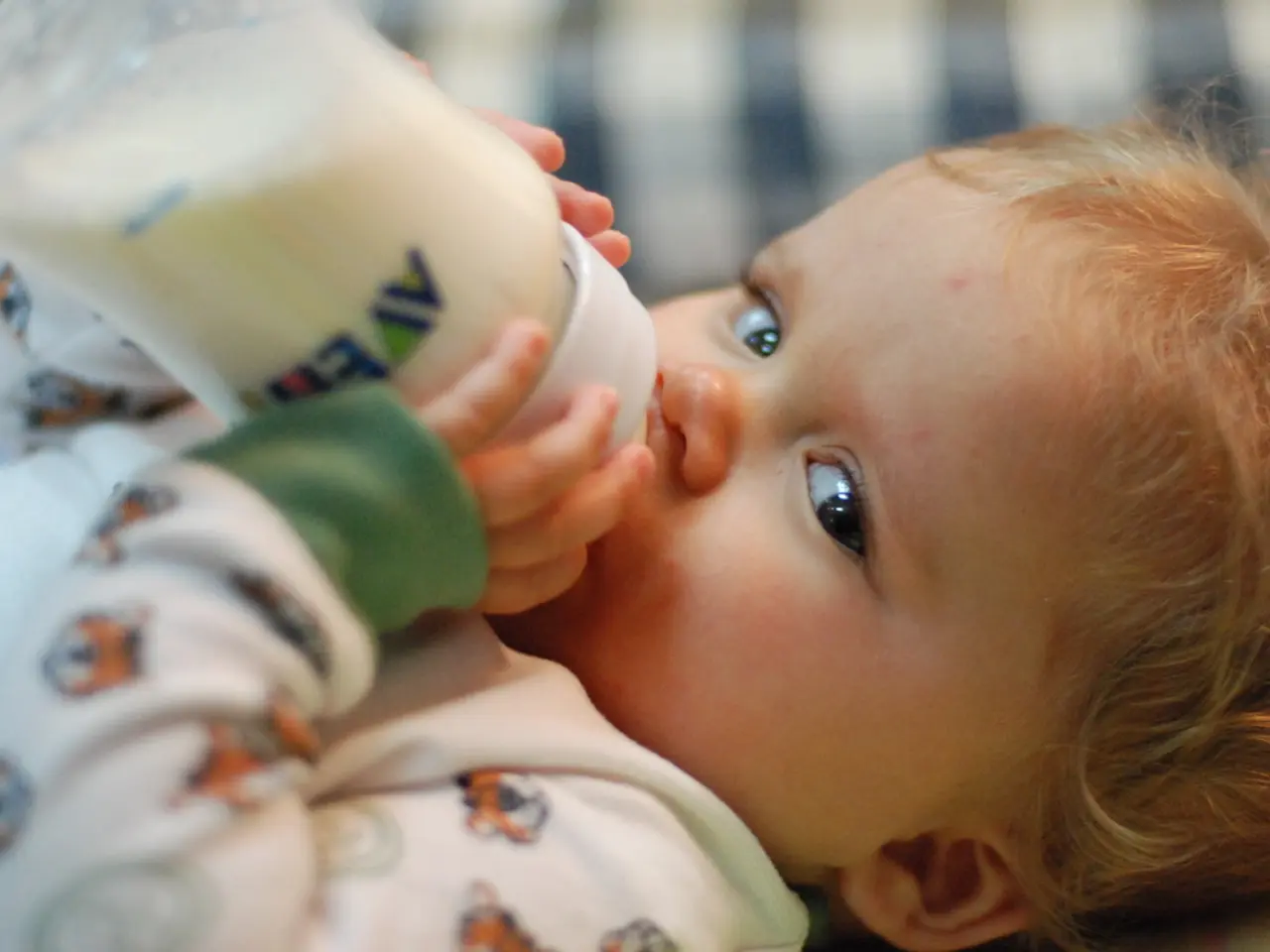Reasons for Baby's Excess Gas: Identifying Symptoms, Diagnosing Causes, and Addressing Remedies
Gas in babies is a common issue that can cause discomfort and distress for both the baby and the parents. This article aims to shed light on the factors contributing to gas in babies, home remedies for relief, and when to consult a pediatrician.
1. **Factors Contributing to Gas in Babies**
Babies can get gas from various sources, such as swallowing air, excessive crying, an immature digestive tract, digestive or stomach problems, and food sensitivities.
- Swallowing air: This can occur during feeding, especially if the latch is not proper during breastfeeding or if the baby is bottle-fed. The air can get trapped in the stomach, leading to discomfort and gas. - Excessive crying: Crying can cause babies to swallow more air, which can contribute to gas buildup and discomfort. - Immature digestive tract: Newborns have digestive systems that are still developing, making them prone to gas buildup as they learn to digest milk and other substances. - Digestive or stomach problems: Issues like lactose intolerance or other digestive problems can lead to gas production as undigested substances are fermented by bacteria in the intestines. - Food sensitivities: Sensitivities to milk proteins or other foods can cause gas and discomfort in babies.
2. **Home Remedies for Gas Relief**
There are several home remedies that can help alleviate gas in babies:
- Gentle tummy massage: Massaging the baby's tummy in a clockwise direction can help stimulate digestion and relieve gas. - Tummy time: Allowing the baby to spend time on their tummy can help relieve gas. - Bicycle legs movement: Gently moving the baby's legs in a bicycle motion while they lie on their back can help release trapped gas. - Proper feeding techniques: Ensuring a proper latch during breastfeeding or using the right bottle nipple size can minimize air intake. - Burping: Regular burping after feeding helps release swallowed air.
3. **When to Consult a Pediatrician**
Parents should consult a pediatrician if they notice any of the following symptoms: fever, vomiting, changes in stool or urine, persistent gas and discomfort, allergic reactions, unusual fussiness, or signs of pain. Early consultation can help identify underlying issues and provide relief for the baby.
In older infants who eat solids, new foods may cause gas and could be a sign of a food sensitivity, particularly cow milk. Gas is not a medical condition, but severe gas or symptoms such as vomiting, diarrhea, blood in stool, decreased wet diapers, reduced ability to drink milk, irritability, changes in breathing, and increased sleepiness may require contacting a pediatrician.
By understanding the causes of gas in babies and implementing appropriate home remedies, parents can help their little ones find relief from this common issue. However, it is essential to consult a pediatrician when necessary to ensure the baby's health and well-being.
Additionally, research indicates that some parents of children with gas bloating may also experience related concerns, such as the stress and anxiety that come with a baby's discomfort. During these moments, it's crucial to remember that the use of science, health-and-wellness information, fitness-and-exercise routines, and proper nutrition can contribute to overall family wellness and resilience.
Sclerosis, a hardening of the tissue, is not directly linked to gas bloating in babies. However, multiple sclerosis, a chronic disease of the central nervous system, can affect adults, potentially causing symptoms like fatigue, numbness, and problems with balance and coordination. While unrelated to gas bloating, it's essential to mention that early diagnosis and treatment are vital for managing multiple sclerosis.
Besides gas bloating, other digestive issues like Crohn's disease, ulcerative colitis, bipolar disorder, psoriasis, dermatitis, atopic dermatitis, HIV, and multiple cancers can cause discomfort and distress. Parents should be aware that these conditions can impact a family's health and emotional well-being. As such, it is important to prioritize open communication, understanding, and support within the family.
Moreover, gas bloating could potentially be a symptom in newborns with specific diseases. For instance, some infants with HIV can experience gas bloating due to the virus' effects on their digestive system. Similarly, a newborn's gas bloating could be an indication of a more severe condition, such as HIV.
In some cases, gas bloating can also be a sign of food intolerances, like lactose intolerance or gluten sensitivity, which are linked to certain health conditions like HIV and celiac disease. Therefore, it is recommended to consult a pediatrician if a baby consistently shows signs of gas bloating, particularly after consuming specific foods.
Finally, it is essential to acknowledge that gas bloating is not only associated with digestive issues. Some people may experience gas bloating as a symptom of migraines, a complex neurological syndrome characterized by recurrent headaches. Aq, a dietary supplement meant to alleviate migraines and other symptoms, may provide some relief.
Always consult a healthcare professional or a qualified nutritionist for personalized advice regarding nutrition, health-and-wellness, fitness-and-exercise, and parenting to help manage gas bloating and maintain optimal family health.




